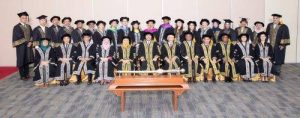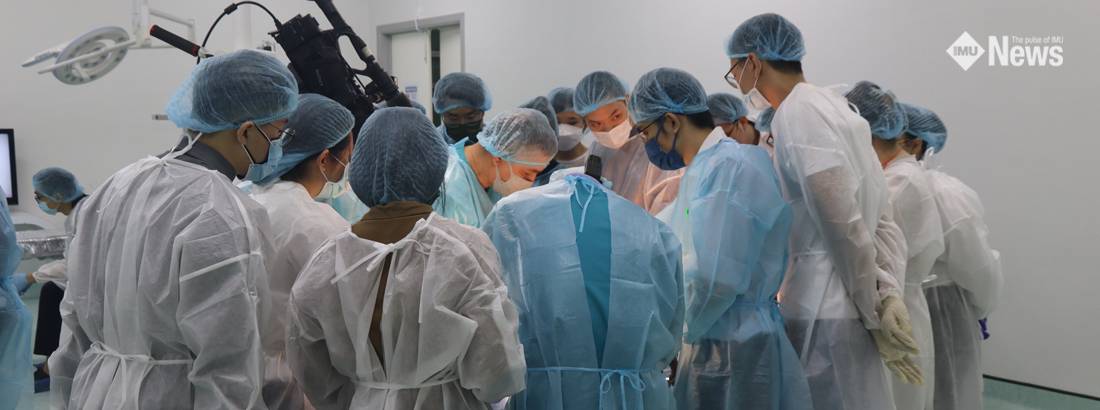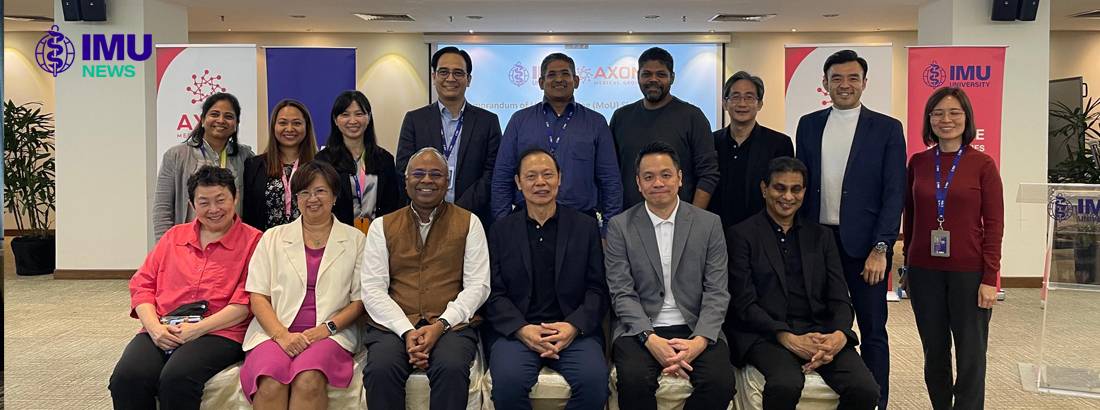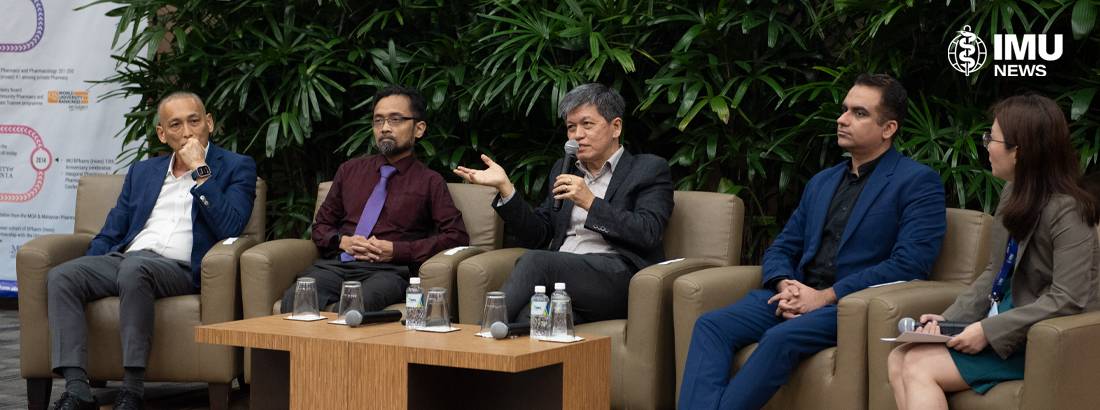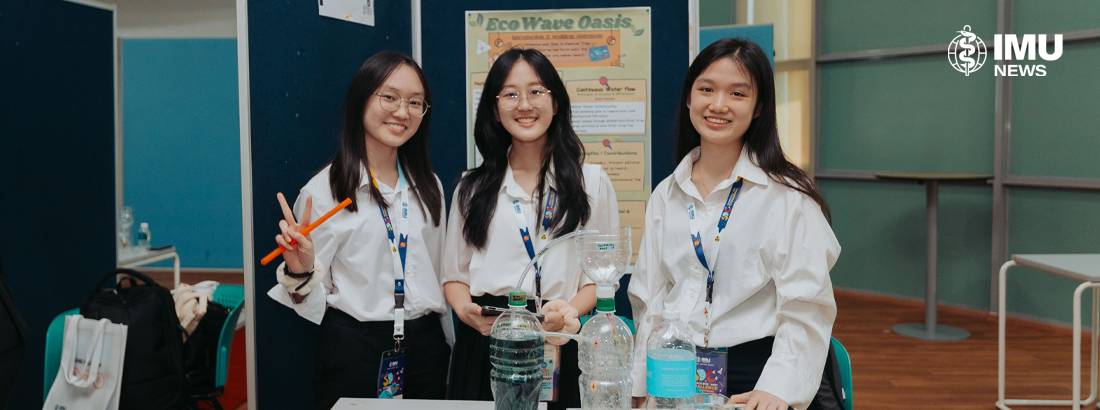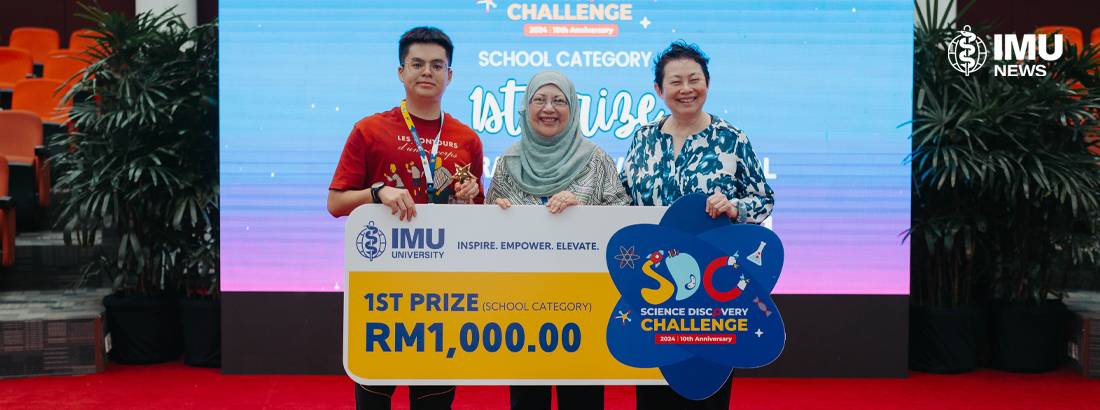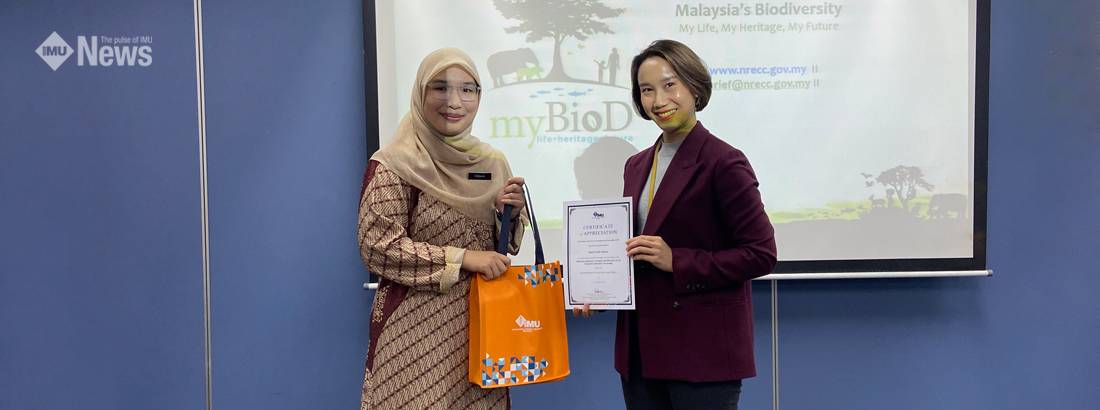Kuala Lumpur, 27 August 2024 – The IMU University proudly announces the installation of YBhg Tan Sri Dato’ Dr Abu Bakar Suleiman as its 8th Chancellor, marking a significant milestone in the University’s history and reaffirming its commitment to excellence in healthcare education.
During the ceremony, IMU Vice-Chancellor, Academician Professor Emerita Datuk Asma Ismail commended Tan Sri Dato’ Dr Abu Bakar’s profound contributions to Malaysia’s healthcare system and the University. “Tan Sri’s visionary leadership has been pivotal in shaping IMU into the leading provider of healthcare professional education in the region,” said Prof Asma.
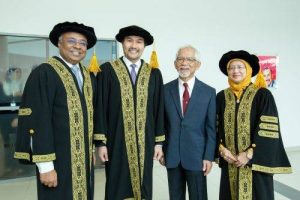
“His integration of healthcare and education continues to prepare our students to thrive in an evolving landscape.”
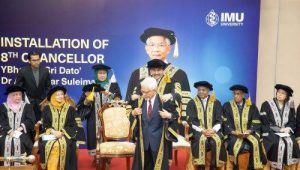
Tan Sri Dato’ Dr Abu Bakar’s distinguished career began in 1969 as a medical officer and rapidly advanced, with him becoming the Ministry of Health’s first nephrologist in 1976. He played a key role in establishing a nationwide dialysis network and pioneering self-haemodialysis in Malaysia.
His leadership at the Ministry of Health, where he served as Director General from 1991 to 2001, was marked by a focus on patient-centered care and groundbreaking advancements in health IT.
After joining IMU as President in 2001, Tan Sri led the University’s growth and diversification, laying the foundation for its current status as a top-tier educational institution. His recent appointment as Clinical Advisor to the Minister of Health in June 2024 underscores his ongoing commitment to the sector.
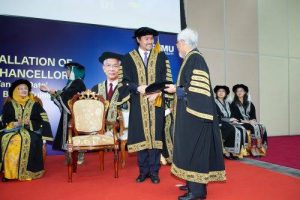
The installation of Tan Sri Dato’ Dr Abu Bakar as Chancellor aligns with a pivotal moment for IMU as it expands its academic vision to embrace holistic health through the One Health concept, integrating human, animal, and environmental well-being. Moving beyond traditional science-based programmes, IMU is now introducing courses in business, technology, and the social sciences within the healthcare context. This expansion aims to inspire a new generation of students—regardless of their academic background—to explore diverse and innovative careers in the healthcare sector.
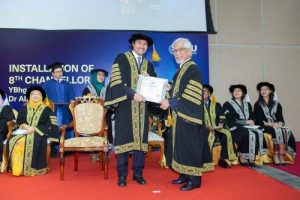
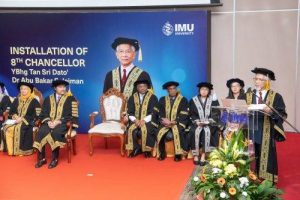
Citation
YBHG TAN SRI DATO’ DR ABU BAKAR SULEIMAN
MBBS (Monash), MMed (S’pore), FRACP, AMP (Harvard), FAMM, FAMS, FRCP, FRCPE, FRCP (Glasgow), FRCP (Thailand), FRCPI, Hon FACP, Hon FRCSI, Hon FRCSE, FAFPM, FASc, Hon MD (Monash), Hon DMed Sc (UKM), Hon DSc (UPM), Hon PhD (UMS), Hon MD (Qld), DSC (HON) (SOTON), Hon DMed (IMU)
Tan Sri Dato’ Dr Abu Bakar Suleiman began his journey as a medical officer in 1969, and his rise to prominence is a testament to his leadership, vision, and capacity for innovation. By 1976, he was leading the Department of Nephrology at the Hospital Kuala Lumpur (HKL), serving as the Ministry of Health’s first and only nephrologist at the time. This dual role required him to manage both national and institutional responsibilities in his area of expertise.
During his 11 years at HKL, he played a pivotal role in developing the nephrology and dialysis centre, which also provided services to other hospitals across Malaysia. As demand for dialysis services grew, Tan Sri successfully rallied support from donors and non-governmental organisations to establish a nationwide network of dialysis centres. He also introduced the groundbreaking concept of self-haemodialysis, making it possible for patients to receive treatment at home, in their offices, or at satellite clinics. This innovation significantly increased access to affordable care for many patients.
In 1987, Tan Sri transitioned from HKL to the Ministry of Health (MoH), where he served as Director of Medical Services, then as Deputy Director General in 1989, and finally as Director General from 1991 until his retirement in 2001.
Throughout his tenure, Tan Sri focused on prioritising patient-centered care, not as a mere trend but as a mission to serve the people. He championed the development of human capital and emphasised the importance of research. He was a driving force behind the advancement of quality assurance in Malaysia, initiating the accreditation of hospitals and medical schools.
Recognised for his foresight, Tan Sri was appointed by the Prime Minister in 1996 to lead a national task force on telehealth. He also spearheaded the implementation of Health IT solutions in government hospitals and clinics, culminating in the creation of Malaysia’s first paperless and filmless hospital in Selayang in 1998. At that time, it was among the most advanced hospitals globally.
Despite his extensive responsibilities within the Ministry, Tan Sri remained committed to the broader healthcare sector, taking on leadership roles in the Malaysian Medical Association (MMA), the Academy of Medicine of Malaysia, and the Malaysian Society of Transplantation.
At the MMA, he was instrumental in a landmark study on Malaysia’s health services in 1979, titled “Future of the Health Services in Malaysia,” which influenced many policies and procedures in the public health system.
Tan Sri also pursued continuous learning and professional development for Malaysian medical practitioners. As president of the Malaysian Medical Council, he launched the Continuing Medical Education initiative in 1995. In 2000, he was key in establishing the National Specialist Register (NSR), ensuring that specialists were properly trained and qualified, and providing the public with a reliable way to identify them, thereby enhancing transparency and service quality.
After retiring from government service, Tan Sri joined the International Medical University (IMU) in 2001 as its president. Under his leadership, IMU launched healthcare services that not only served the community but also supported clinical training, allowing healthcare professionals to further hone their skills.
He played a crucial role in developing new learning initiatives at the IMU, focusing on professionalism and ethics, clinical and communication skills, information management, and independent learning. His efforts also drove the integration of e-learning at the university.
Under Tan Sri’s guidance, IMU achieved top-tier recognition, including ISO 9001 and ISO 17025 certifications, and a Tier 6 (outstanding) status under Malaysia’s Setara rating system. He also fostered a research-rich environment, with IMU producing over 100 publications and 200 scientific presentations annually.
Though Tan Sri stepped down as the University’s president in December 2015, he continued to serve the IMU Group in various capacities, including Chairman of the IMU Group from 2018 to 2022 and Senior Advisor to the IMU University in 2023, bringing his vast experience and wisdom to both the university and the country’s health and education sectors.
Tan Sri remains active on national and international platforms, participating in various committees, including the national advisory council under the Ministry of Health. Recently in June 2024, his contributions were further recognised with his appointment as Clinical Advisor to the Minister and the Ministry of Health. Even in retirement, he is committed to mentoring the next generation of leaders in their respective fields.
While it is impossible to capture the full extent of Tan Sri’s contributions to healthcare, education, and the nation in these few paragraphs, one thing is clear: his unwavering belief that to be a good doctor, one must first be a good person, has been the cornerstone of his success.
